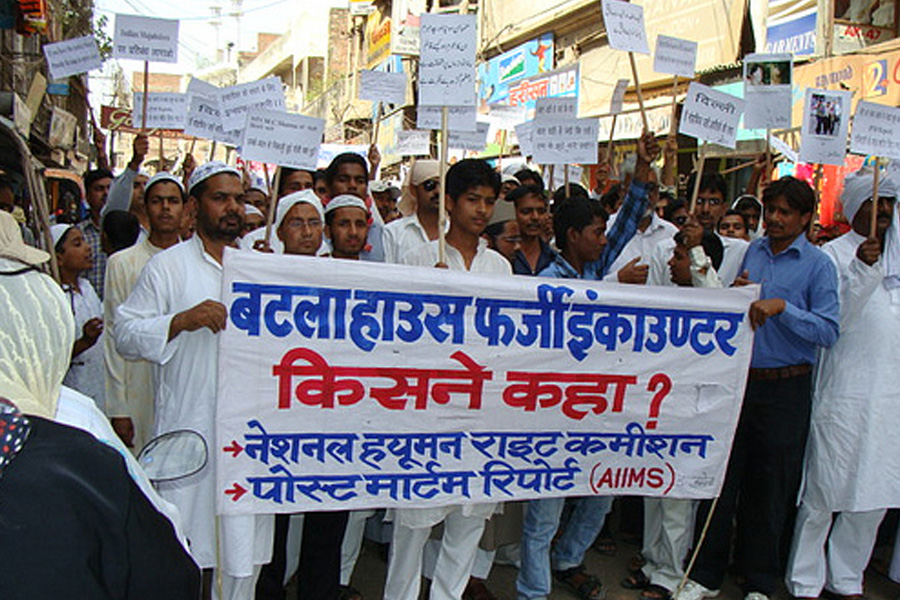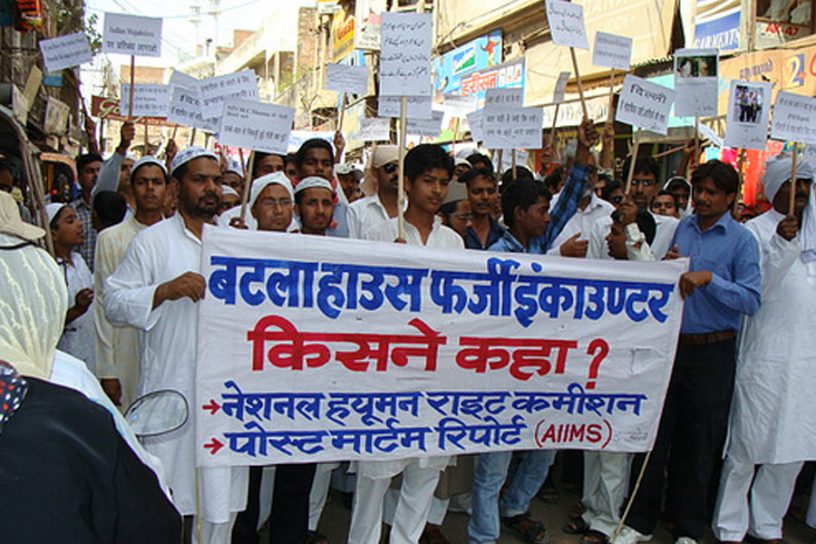
The residents invested in collective learning of the legal procedures and were able to create tactical situations on the street to force the state agencies to follow the letter of the law.
Author
Mohammad Sayeed, Assistant Professor, Centre for Writing Studies, O.P. Jindal Global University, Sonipat, Haryana, India.
Summary
This article focuses on legal learning and a specific type of protest that emerged in the aftermath of the police shoot-out at Batla House, New Delhi in 2008. Following the shooting, there was an atmosphere of fear in the locality, as doubts began to emerge about the police’s version of the story. What exacerbated the situation was a series of arrests from the locality, often without proper documents and procedures.
Under the pretext of national security, the mandatory legal procedures were often ignored, and severely limited the legal avenues available for the residents. The residents invested in collective learning of the legal procedures and were able to create tactical situations on the street to force the state agencies to follow the letter of the law. In this process, they reproduced the state’s logic of combining the judicial with the extrajudicial but aimed it towards deepening their belonging to the law.
Published in: Contributions to Indian Sociology
To read the full article, please click here.


